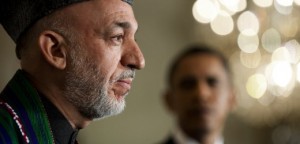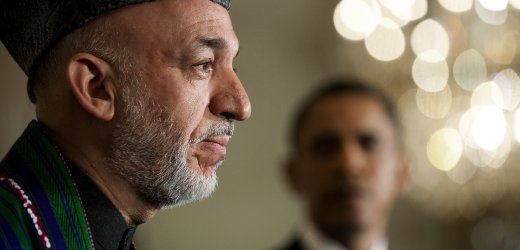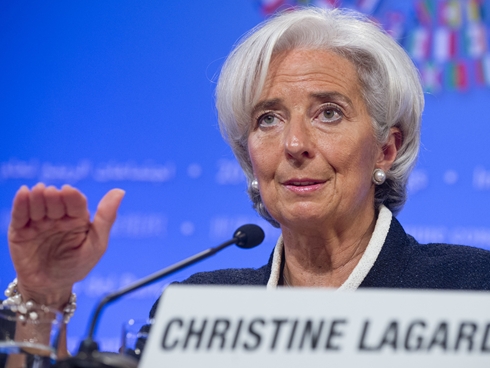
Kabul (AFP) – Kabul has laid out an ambitious and contentious five-step plan that could bring hardline Taliban Islamists into government as efforts to broker peace accelerate ahead of the withdrawal of western troops.
The Taliban regime was ousted by a US-led invasion in 2001 and there are concerns that their return to any sort of power could see an erosion of gains in democracy and human rights, particularly the rights of women.
But with the United States and NATO due to withdraw their combat troops in 2014, there are also concerns that a multi-sided civil war could erupt, and the search for peace has taken on a new urgency.
A flurry of diplomatic activity recently has seen meetings between the Afghan and Pakistani governments in Islamabad and Turkey, while the Taliban is participating in a conference in France this week with government officials and other opposition groups.
Kabul’s Peace Process Roadmap, obtained by AFP this week, outlines a vision in which by 2015, “Taliban, Hizb-e-Islami and other armed groups will have given up armed opposition”.
They will have “transformed from military entities into political groups, and are actively participating in the country’s political and constitutional process, including national elections”.
Analysts say the roadmap paints an unlikely scenario of steady progress towards peace by 2015.
“This roadmap is too idealistic, we are still in the very first steps of a peace process,” said Abdul Waheed Wafa, executive director of the Afghanistan Centre at Kabul University.
“The Taliban simply don’t want to talk to the government, because they think the government is not in a position to give them what they want. They’ve always asked for direct talks with other stakeholders such [as] the US.”
But there are already signs of some movement on the steps outlined in the four-page roadmap produced in November in the name of the Afghan government’s High peace Council.
The first step calls for a focus on “securing the collaboration of Pakistan” in the peace process.
This includes Islamabad releasing specific Taliban detainees held in its prisons in the hope that this could help bring the militants to the negotiating table.
In a sign that the fractious neighbours could be starting to work more closely together, Pakistan freed a first batch of nine prisoners last month, although they did not include the top Taliban figures Kabul wants released.
The Taliban, however, has publicly refused to talk directly with the Kabul government of President Hamid Karzai, dismissing him as a puppet of the Americans.
The US itself began exploratory contacts with the Taliban in Qatar this year, but the Islamists broke them off a few months later.
The second step in Kabul’s roadmap calls for initial moves towards formal direct negotiations with the Taliban in Saudi Arabia in the first half of next year, with the backing of the US and Pakistan.
To facilitate this, the plan calls for the US and the United Nations to support the dropping of sanctions against specific Taliban and other armed opposition leaders.
On Monday, the UN security council renewed its sanctions regime against the Afghan Taliban, but adapted it to help those on the blacklist travel outside of Afghanistan for peace talks.
Step three of the roadmap, set for the second half of 2013, calls for agreements on a ceasefire and the transformation of the Taliban and other armed groups into political parties which could take part in elections.
It says the Taliban could participate “in the power structure of the state, to include non-elected positions at different levels.”
This could see Taliban members in cabinet and holding regional posts as provincial governors, particularly in their strongholds in the south and east of the country.
That would likely face strong opposition not only from rights groups but from the Northern Alliance which ousted the Taliban from power with US backing in 2001.
The Taliban draws most of its support from the majority Pashtun population in the south, while Tajiks and other minority groups wield power in provinces in the north and west.
The final steps in the plan include securing a peaceful end to the conflict during the first half of 2014 and moves to sustain the “long-term security and stability of Afghanistan and the region”.
The principles governing the peace process state that it “must respect the Afghan constitution and must not jeopardise the rights and freedoms [of] the citizens of Afghanistan, both men and women”.
The Taliban must also “cut ties with Al-Qaeda and other terrorist groups and verifiably renounce violence”


